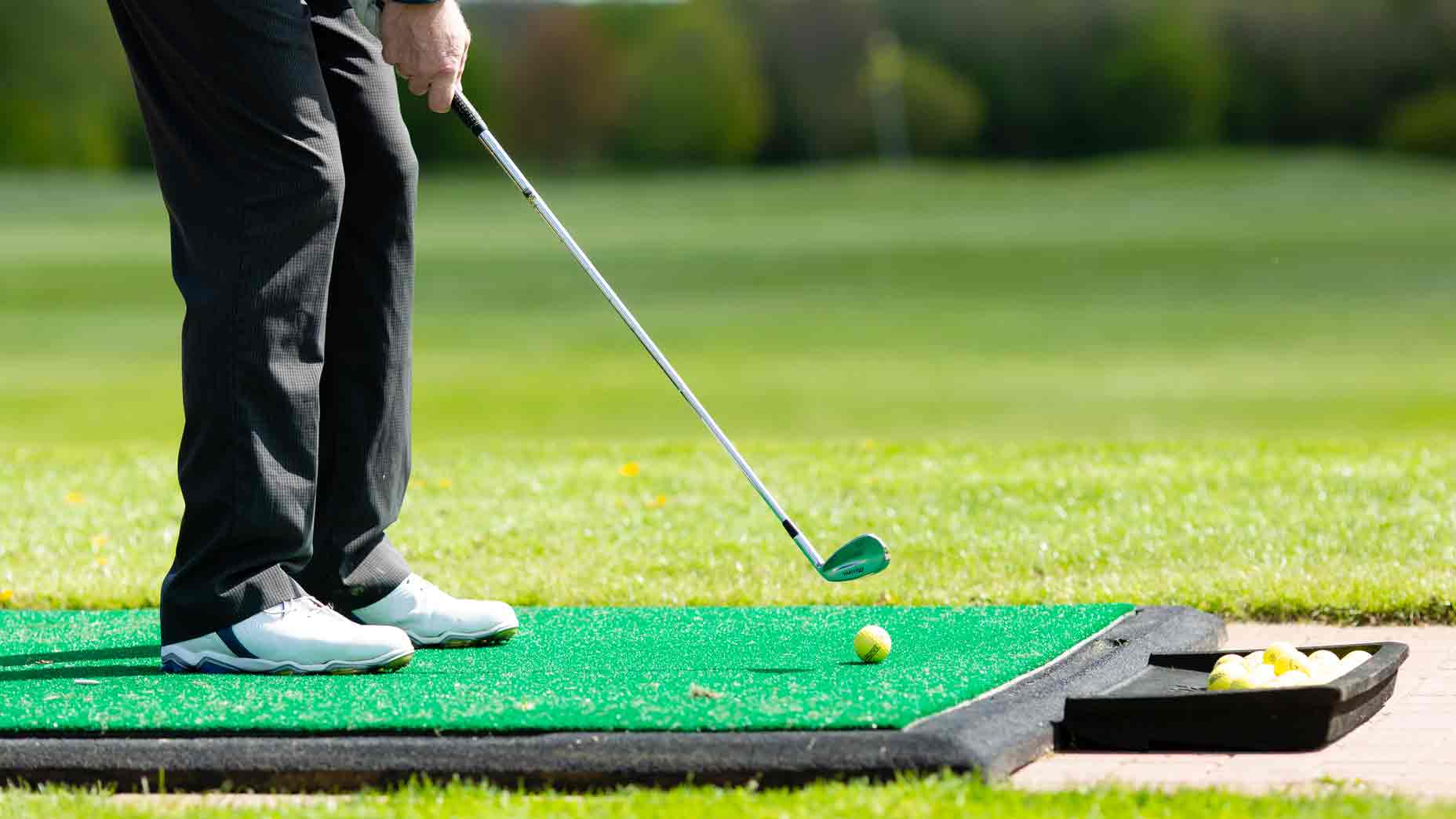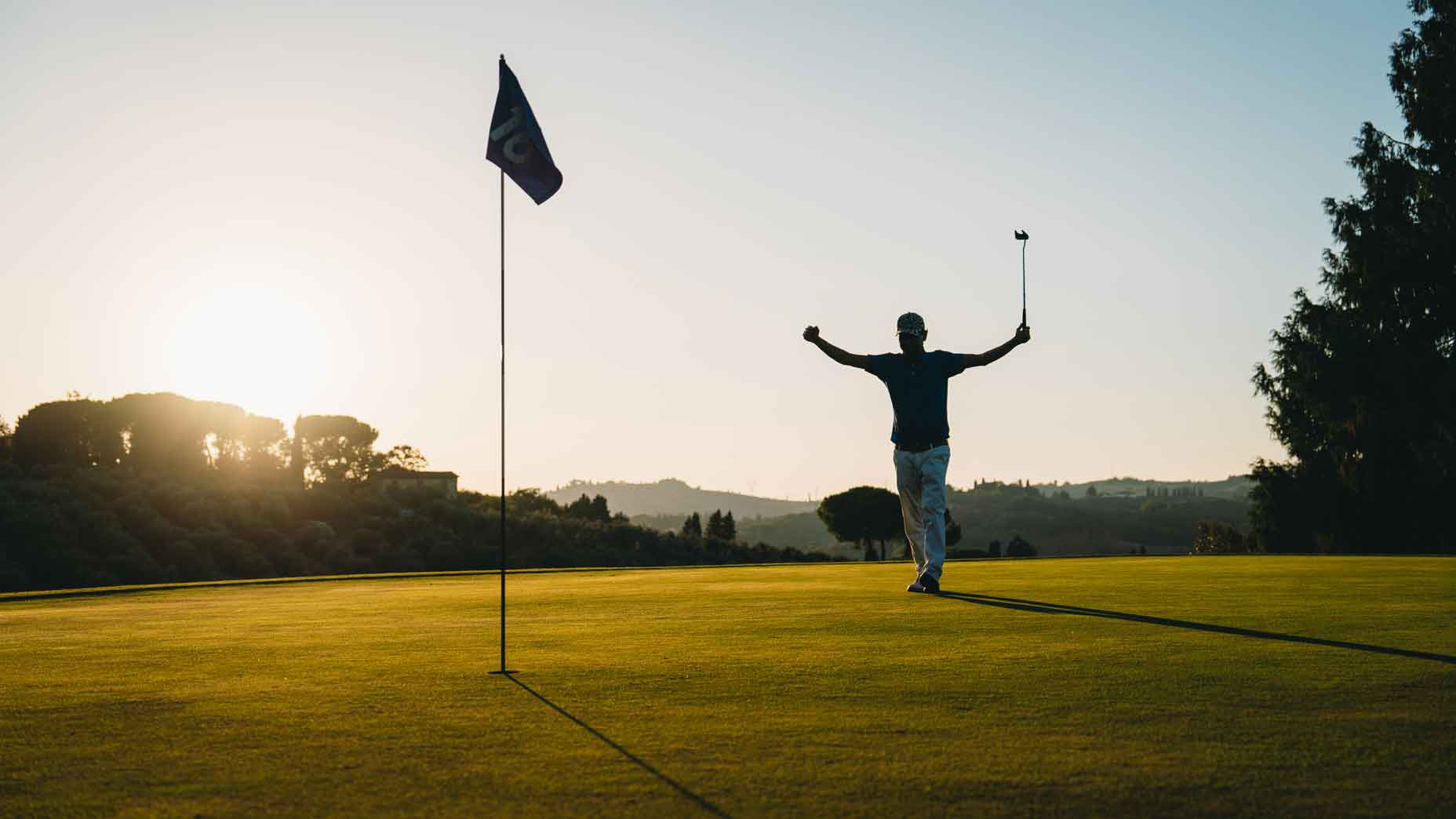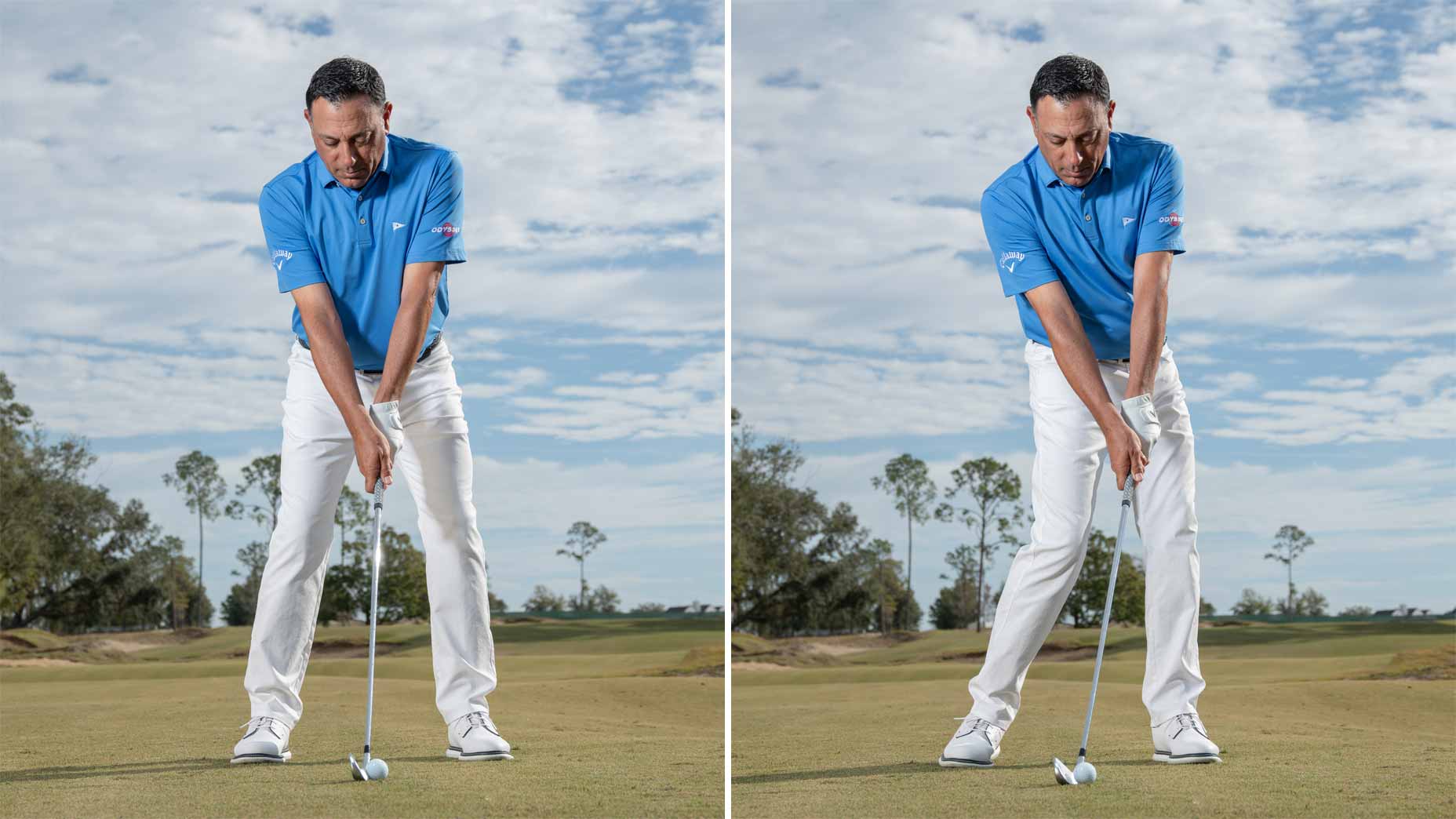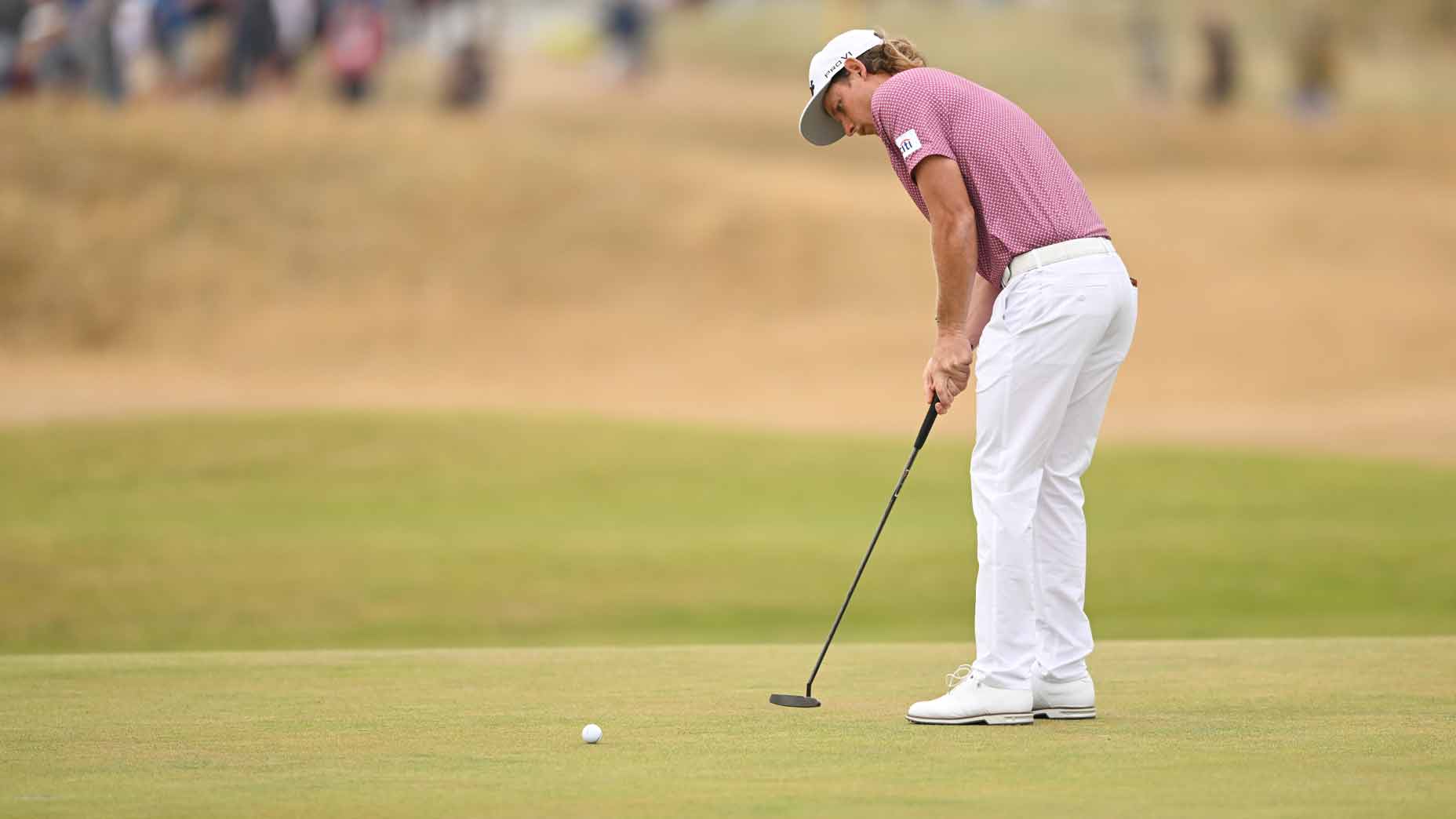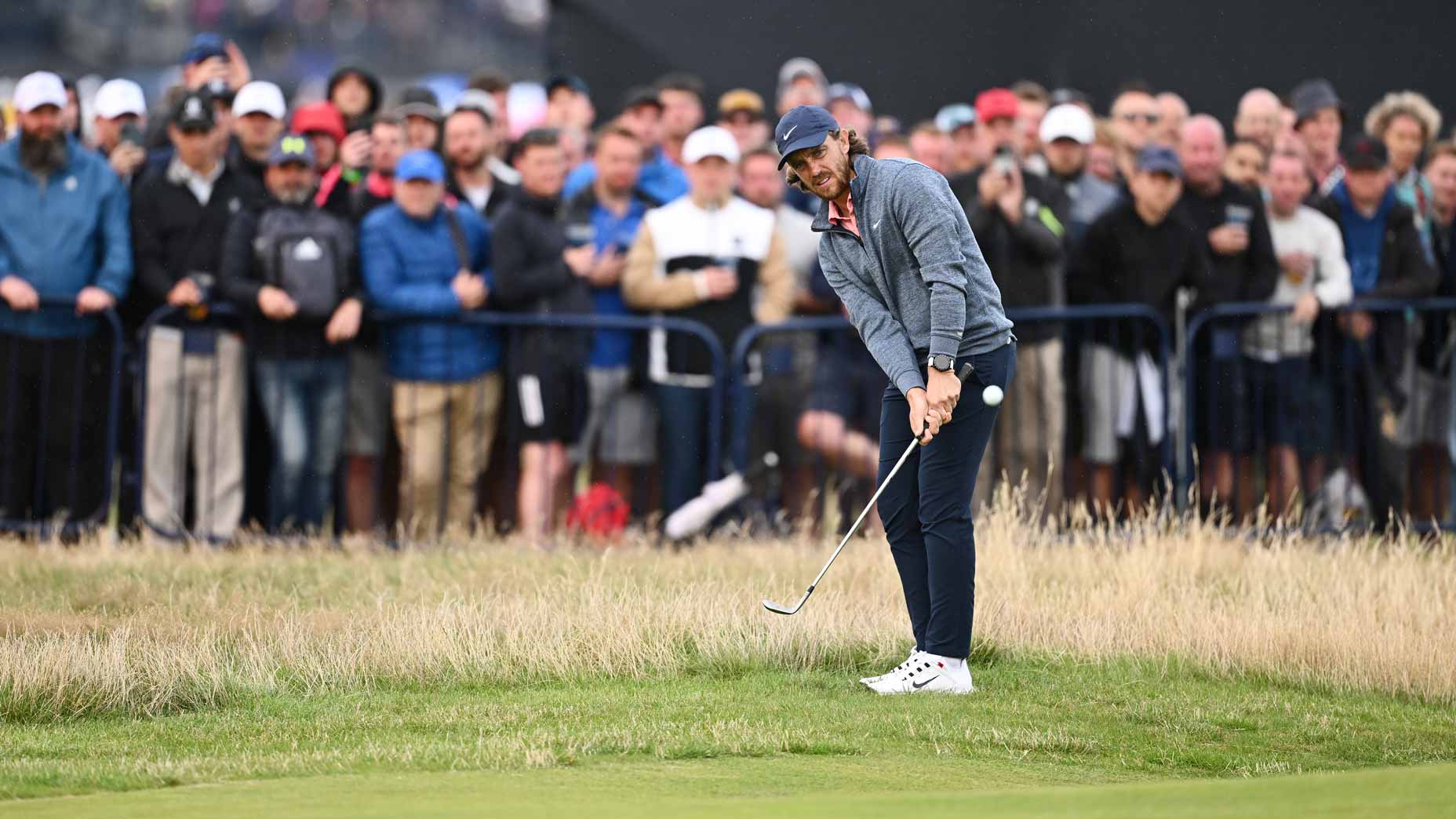When I was a junior and college golfer I did a lot of stupid practice. I spent hours upon hours on the driving range and hit probably a million golf balls with my 7-iron along the way.
It was the golf equivalent of learning to stay afloat by thrashing around in water.
It was only when I got into the workforce, and had less time to practice, that I realized I needed to be smarter with the time I did have and to make it count.
It’s why this recent clip from Dr. Greg Rose, who alongside GOLF Top 100 Teacher Dave Phillips runs the Titleist Performance Institute, resonated so much.
Blocked vs Random Practice
— OnBaseU (@OnBaseU) April 13, 2022
Think about each practice rep as a math problem:
Blocked is like doing the same problem over and over again.
Random is like doing a new problem each time.
This is a concept we cover in depth in the online portion of our Hitting course. pic.twitter.com/neFEvfnrF1
“Any form of practice is going to help you,” he says. “But what we’re talking about is: How do we short-circuit this and get better the fastest?”
In oversimplified terms, there are two kinds of practicing that people talk about most often: blocked practice, and random practice, and as Rose says, they both work.
Block practice is when you practice doing the same thing over and over again. Hitting a bunch of three-foot putts from the same spot on the green is a classic example of block practice.
Random practice is hitting different shots all the time. Hitting to different targets on the range is a common form of random practice.
Why random practice is the best
Blocked practice serves an important purpose, especially when you’re trying to make technical changes to your golf swing. But randomized practice is the best route to improving faster, Dr. Rose says. He uses the example of answering the same math question multiple times in a row to help explain blocked practice.
“The first one was tough, right? How was the second one? Easy. Third one? Easy,” he says. “There’s this illusion of working when really you’re reciting from memory.”
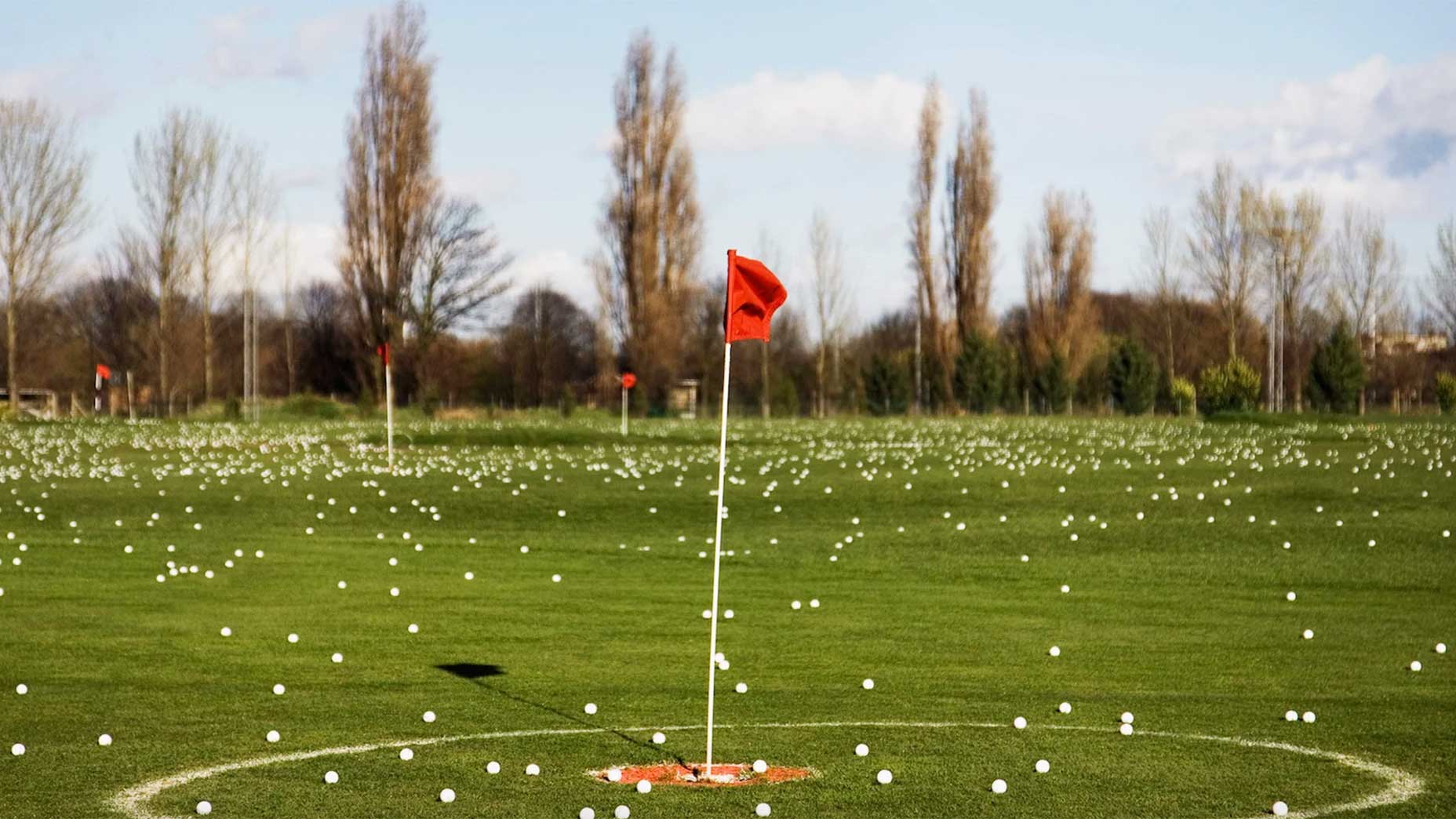
You can get better this way, Dr. Rose goes on to say, but it’ll take longer. That’s why he says random practice is the best bet to improve quickly.
I listed a bunch of randomized practice techniques you can try right here, based on research by GOLF Top 100 Teacher Eric Alpenfels, but my personal favorite is hitting a different club for each shot, and never hitting the same club for back-to-back shots.
